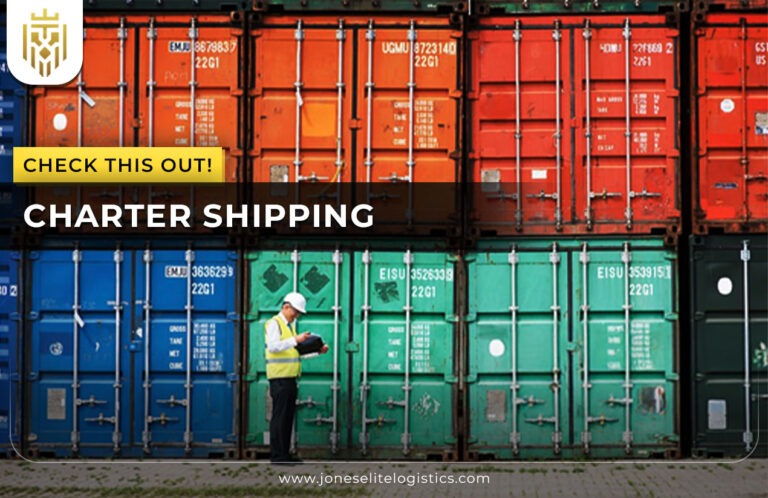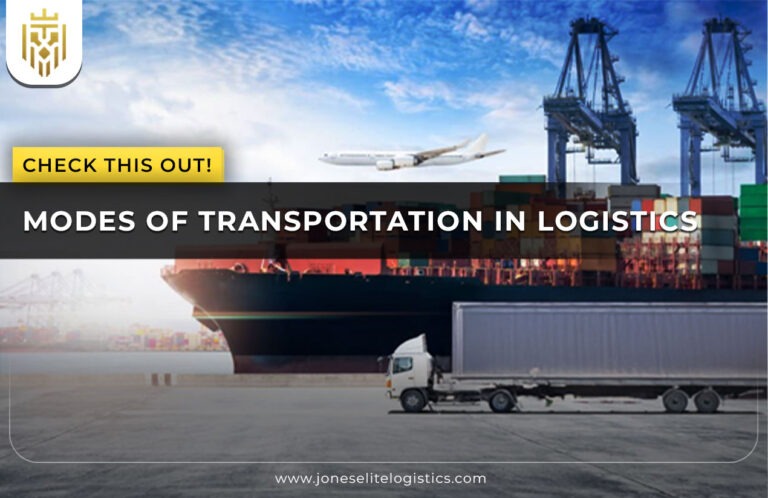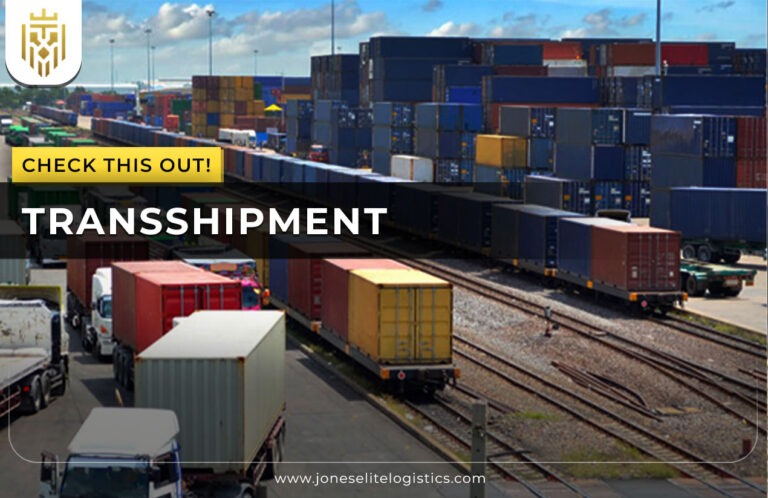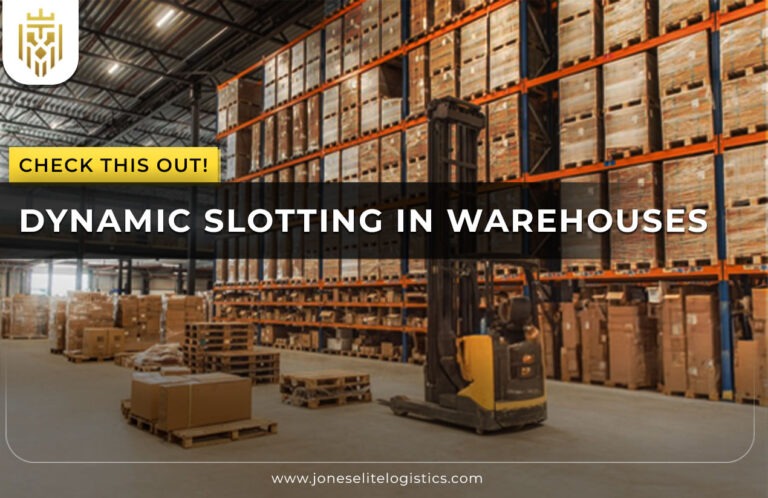What is Project Logistics?
Project Logistics is a form of logistics management system that involves planning, coordinating, and managing the transportation, storage, and distribution of goods, equipment, and materials for a specific project, often large-scale, involving heavy shipments to distant locations. Such project logistics solutions often include services like air freight, ocean freight, and road freight to ensure the seamless execution of a logistics project.

Characteristics of Project Logistics:
Project logistics comprises of unique characteristics combined to varying degrees, and they are:
Temporary Nature:
Project logistics is set up exclusively for the duration of the project and is dissolved once the project is completed, making it a focused, short-term operation dedicated to achieving specific project goals. This temporary nature requires tailored logistics solutions and expertise to handle special cargo and oversized cargo effectively.
Multidisciplinary Approach:
Project logistics is set up exclusively for the duration of the project and is dissolved once the project is completed, making it a focused, short-term operation dedicated to achieving specific project goals. This temporary nature requires tailored logistics solutions and expertise to handle special cargo and oversized cargo effectively.
Time Sensitivity:
On-time delivery is a critical priority in project logistics, as delays can result in significant cost overruns and missed project deadlines. This necessitates meticulous planning and timely execution, supported by robust freight forwarding systems and advanced project logistics management strategies to meet deadlines.
Complexity:
Project logistics requires managing and coordinating highly complex operations, which arise from factors such as the large scale of the project and the diversity of specialized equipment and resources needed. These operations often involve industrial projects, bulk cargo, and heavy equipment, requiring innovative logistics services to overcome these challenges.
Importance of Project Logistics:
Project Logistics plays a key role in completing one-time projects, impacting the following areas:
Storage Management:
Optimizing storage solutions and inventory control is essential to ensure the safe and efficient handling of materials throughout the project lifecycle, minimizing storage costs, and preventing damage or loss of critical components. Supply chain management tools are instrumental in achieving the ideal logistics project management.
Tracking of shipment:
Continuous monitoring of goods in transit is crucial for ensuring timely delivery, maintaining accurate inventory management, and proactively resolving any issues that may arise during transportation, thus safeguarding the project’s schedule. Tools like cargo insurance add an additional layer of security.

Risk Reduction:
Implementing robust strategies and contingency plans is vital for minimizing potential disruptions, delays, and unforeseen challenges in the logistics process, ensuring that the project cargo stays on track despite unexpected events. Experienced project managers and logistics partners play a key role in this.
Legal Compliance:
Adhering to regulatory requirements and industry standards is essential for the smooth and lawful execution of all logistics operations within the project, helping to avoid legal complications and ensuring ethical practices throughout. CEVA Logistics offers expertise in this area.
Challenges of Project Logistics:
Project logistics arrives with its set of challenges that need to be checked on a regular basis, and they include:
Route Planning:
Developing efficient transportation routes is crucial to eliminate inefficient routes and delivery delays to ensure the timely delivery of project materials, thereby enhancing overall project efficiency and meeting tight deadlines. This is especially important for sea freight and rail freight routes.
<image of team doing route planning>
Risk Control:
Identifying potential risks early on and implementing proactive measures is essential to mitigate disruptions, ensuring project continuity and minimizing the impact of unforeseen challenges on the logistics process. Proper project logistics management mitigates these risks.
Budget Constraints:
Balancing project logistics within financial limitations involves optimizing resource allocation, minimizing costs, and making strategic decisions to stay within budget without compromising the project’s quality or timeline. Freight forwarding can be a cost-effective measure to manage budgets.
Protection and Safety:
Ensuring the security and safety of materials, personnel, and equipment throughout the logistics process is critical to preventing accidents, losses, and damage, thereby safeguarding the project’s success and the well-being of all involved. Employing transport engineering ensures such safety measures.
Benefits of Project Logistics:
Project logistics streamline operations by ensuring timely deliveries, efficient resource allocation, risk management, and improved communication. They enhance customer satisfaction, reduce costs, and maintain business continuity through optimized supply chains and proactive planning strategies.
Risk Management
Project logistics risk management aids in multiple areas: identifying risks during planning, tracking mitigation strategies, and monitoring supply chains for threats. Tools like project management services enhance efficiency, while insurance ensures business continuity. Clear communication among teams, suppliers, and stakeholders fosters informed decision-making and seamless collaboration.
Timely Delivery
Project logistics ensure timely delivery through scheduled deliveries that cut costs and reduce delays. GPS-based real-time tracking monitors progress and detects disruptions, ensuring the smooth flow of cargo and freight. Risk management, route optimization, consolidation, lean inventory management, and vendor negotiation streamline operations, making transportation and logistics solutions more efficient. These strategies also address the unique challenges of handling project cargo, including heavy equipment and oversized cargo, ensuring on-time delivery within budget.
Customer Satisfaction
Effective project logistics enhance customer satisfaction with seamless supply chains, accurate tracking, and proactive communication. Maintaining the right inventory levels prevents stock issues, while outsourced warehousing ensures proper storage and order accuracy. By employing freight forwarding services and customs brokerage, logistics professionals can handle complex logistics services efficiently. These efforts, combined with expert handling of bulk cargo, foster lasting relationships and satisfaction, contributing to the success of any logistics project.
Conclusion:
Project logistics is a specialized and complex system that ensures the seamless execution of large-scale projects through meticulous planning, coordination, and risk management. Its temporary nature, time sensitivity, and multidisciplinary approach are essential for delivering successful outcomes within tight deadlines and budget constraints. The expertise of a project logistics expert, coupled with efficient transport engineering, ensures operational efficiency and project success, making it a vital component of supply chain management for industrial and complex projects.
FAQs
1) What is Project Logistics?
Project Logistics is a form of logistics management system that involves planning, coordinating, and managing the transportation, storage, and distribution of goods, equipment, and materials for a specific project, often large-scale, involving heavy shipments to distant locations.
2) What are the Characteristics of Project Logistics?
The characteristics of project logistics include: Temporary Nature, Multidisciplinary Approach, Time Sensitivity, and Complexity.
3) What is the importance of Project Logistics?
Project Logistics plays an important role, especially in the following areas: Storage Management, Tracking of Shipment, Risk Reduction, and Legal Compliance.
4) What are the challenges of Project Logistics?
The challenges of Project Logistics include: Route Planning, Budget Constraints, and Protection and Safety.









